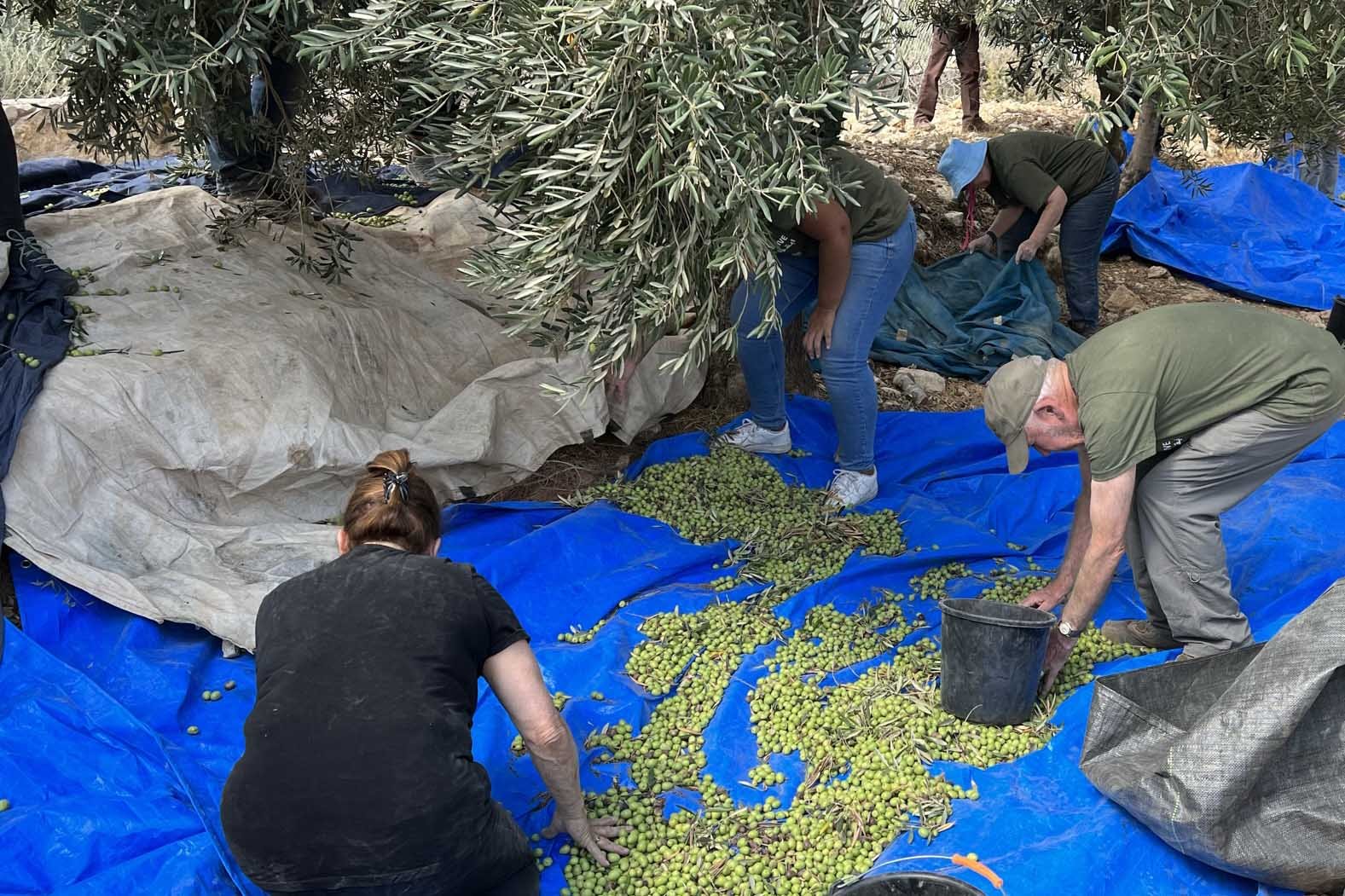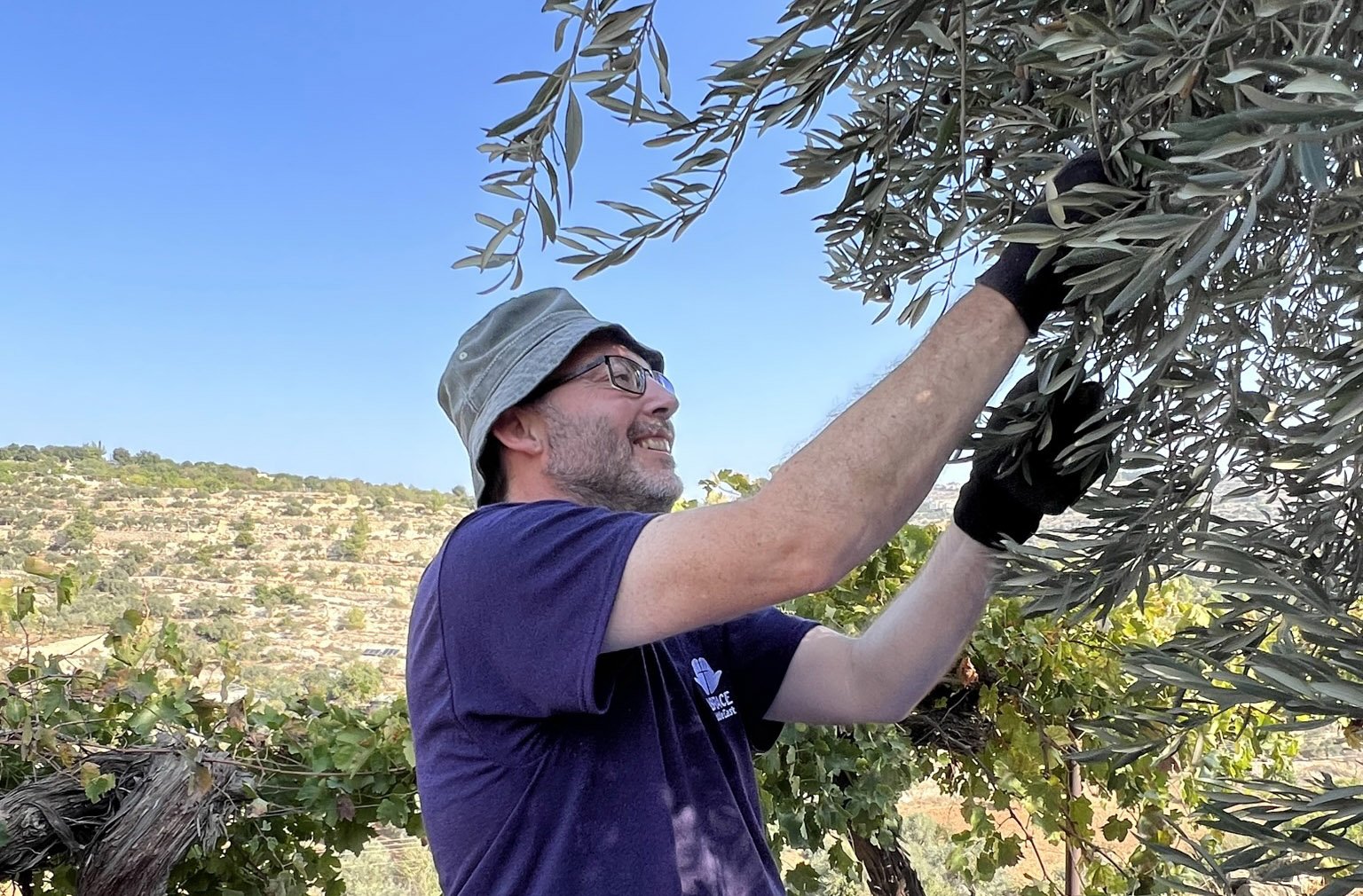My Palestinian Olive Harvest Experience: “Come, see … and tell!”
June 2023
A trip to the Holy Land can be a life-changing experience. Greville Mills took part in last year’s Olive Harvesting Trip, travelling with Embrace to the West Bank to help Palestinian farmers with their olive harvest. Here he reflects on his motivations for making the journey and the lasting impact of what he experienced.
Embrace Olive Harvest Trip, 2022
It seems to be a common theme, but like many Christians I’d always wanted to visit the place where Jesus lived and where he worked out his ministry. I’d always found reasons why it was never quite the right time to go. I ran out of excuses in October 2022 and decided to go on the olive picking programme run by Embrace the Middle East.
One of the motivating factors was my increasing interest in and concern for the welfare and human rights of the Palestinian people, who were experiencing persecution and the effects of the on-going Nakba (in Arabic – the Catastrophe) when, in 1948, 800,000 Christian and Muslim Palestinians became refugees. They were forcibly evicted from their homes, which were then razed to the ground. This process has been gradually continuing, albeit at a slower rate ever since.
I was born in 1948, so I can reflect on my life with its many blessings: my freedom to travel where I like, with whom I like and when I like; my security; my education; and the ability to lead a fulfilling worship, work and family life.
During my entire lifetime, this life has been denied to Palestinians living in the land they were born and raised in. This is not right.
Watching events on social media is one thing; it keeps you informed as to what’s happening, but in many ways it seems unreal, unconnected … and the different languages (Hebrew and Arabic) makes it difficult to understand exactly what’s happening when you speak neither language.
In the gospels, Thomas (John 20:24-29) was not present the first time Jesus appeared to his disciples in the sealed room and said that he would not believe that Jesus had returned until he could see for himself. I too wanted to see for myself what was happening in Palestine, and this trip promised to do just this.
As a multi-faith, multi-denominational group, we were welcomed and told to ‘come, see and tell’. As well as visiting some of the Holy Sites, we picked olives with local farmers and their families. They told us about their lives and how the adjacent settlements, some of which had been built on land previously owned by their families, were affecting their lives.
Harvesting olives.
We met with other advocacy groups, who spoke of the daily restrictions on their lives: not able to travel and, in spite of being less than 20 miles from the sea, never allowed to go there with their families.
We visited a refugee camp dating back to 1948, where families live in close-confined accommodation, with the ever-present threat of raids by heavily armed soldiers, who regularly arrest and take away the children from their families.
The Separation Barrier in Bethlehem.
This visit with Embrace has undoubtedly opened my eyes to an injustice that has been ongoing for too long. And it is right that the response in love and kindness and practical assistance offered by Embrace and their partners on the ground continues. But it is also time to challenge a system that allows the oppression of a minority race to continue.
I returned with much to reflect upon. I was left with mixed emotions but very much the richer for my experiences. I have spoken to two groups about what I saw and heard, and many commented that ‘they didn’t know what had been happening and were appalled.’
They say that ‘seeing is believing’ and this is undoubtedly true. But as Jesus said to Thomas, “Blessed are those who have not seen and yet have come to believe.” (John 21:29)
A little bit of scepticism is healthy, so I hope this will inspire others to ‘go and see … and then tell’.






